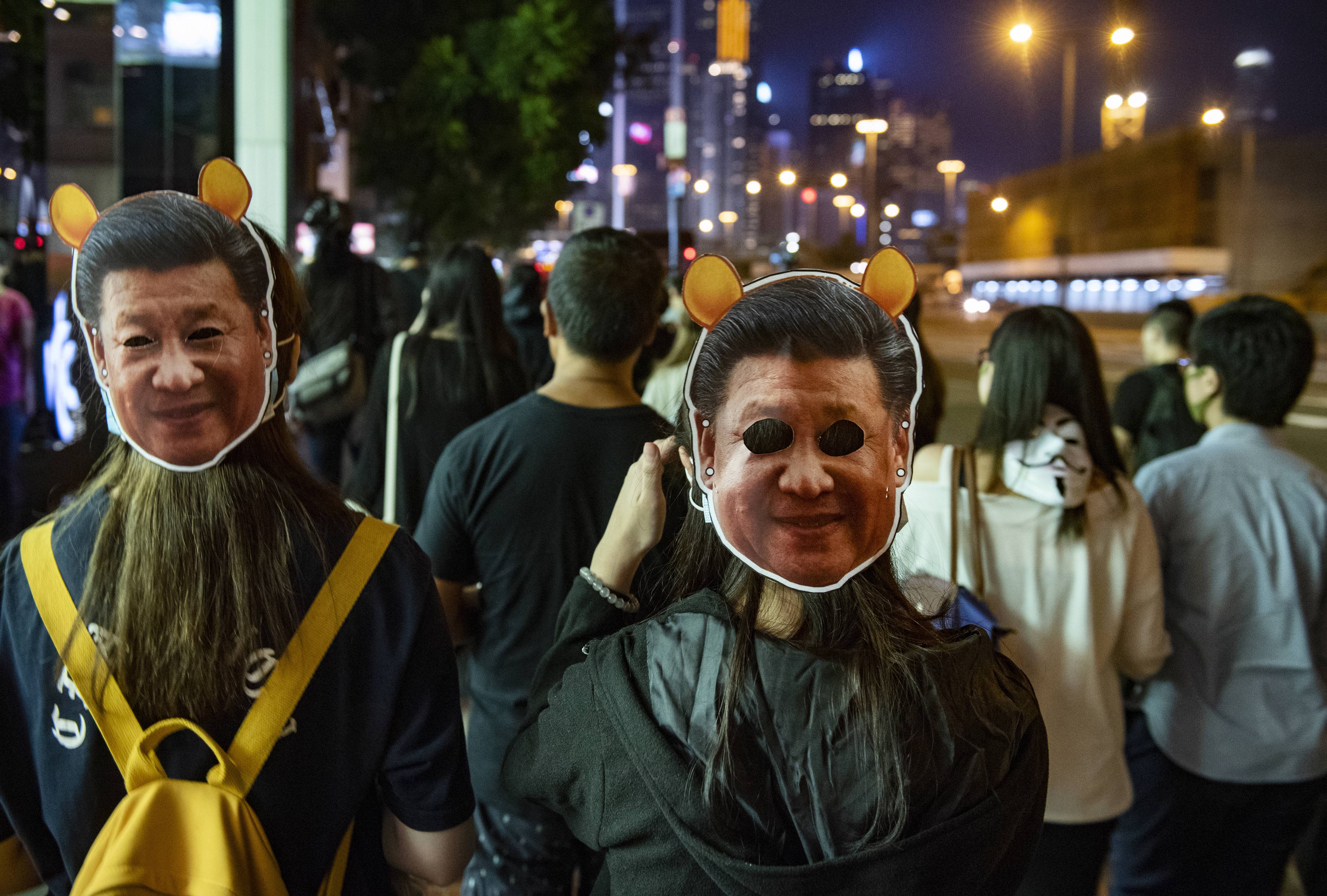MINXIN PEI
 In 2017, Chinese President Xi Jinping declared that by the time the People’s Republic celebrates its centenary in 2049, it should be a “great modern socialist country” with an advanced economy. But following through with planned measures to tighten mainland China's grip on Hong Kong would make achieving that goal all but impossible.
In 2017, Chinese President Xi Jinping declared that by the time the People’s Republic celebrates its centenary in 2049, it should be a “great modern socialist country” with an advanced economy. But following through with planned measures to tighten mainland China's grip on Hong Kong would make achieving that goal all but impossible.
CLAREMONT, CALIFORNIA – Although the rapid escalation of violence in Hong Kong seems terrifying enough, things may be about to get much worse. The communiqué of the recently concluded fourth plenum of the 19th Central Committee of the Communist Party of China (CPC) indicates that Chinese President Xi Jinping is planning to tighten his grip on the former British colony at any cost. He should prepare to rack up a formidable bill.
The communiqué includes two ominous pledges. First, China’s central government will “control and rule” (guanzhi) Hong Kong (and Macau) using “all the powers vested in [it] under the constitution and the Basic Law,” the mini-constitution that defines Hong Kong’s status. Second, it will “build and improve a legal system and enforcement mechanism to defend national security” in both special administrative regions.
A few days after the plenum, the CPC’s plan to assert its control over Hong Kong became clearer when it released the full text of the resolution endorsed there by its Central Committee. China’s central government intends to change the process for appointing Hong Kong’s chief executive and key officials, and reform the system governing how the Chinese National People’s Congress Standing Committee interprets the Basic Law. Moreover, China will support the strengthening of Hong Kong’s law-enforcement capabilities and ensure that the city government enacts legislation to enhance national security. It will also deepen Hong Kong’s economic integration with the mainland and expand “education” programs to cultivate a “national consciousness and patriotic spirit,” especially among civil servants and young people.
Though the details of the plan have yet to be worked out, it seems evident that China’s leaders intend to gut the Basic Law, exercise more direct control over the appointment of key officials, weaken or eliminate Hong Kong’s judicial independence, curtail civil liberties, and suppress political dissent, including through ideological indoctrination. In other words, they have decided effectively to abandon the “one country, two systems” model, which Deng Xiaoping promised to uphold for 50 years after Hong Kong’s return to Chinese rule in 1997.
China’s leaders must know that they will run into powerful resistance. While some initial steps will be taken in Beijing, the plan’s most substantive measures will require action on the ground in Hong Kong. And if the ongoing protests have shown anything, it is that Hong Kong’s people will not go down without a fight.
In fact, China has tried to get Hong Kong’s legislative council to pass national security legislation before, in 2003, but more than a half-million residents took to the street to protest, forcing the government to withdraw the bill. Likewise, China’s attempt in 2012 to institute “patriotic education” in Hong Kong by changing its history textbooks ignited a rebellion among parents and students, forcing the government to back down.
As the CPC attempts to exert total control over Hong Kong, even larger demonstrations, marked by even more violence, are likely. The city will descend further into chaos and become ungovernable. But that may well be what China’s leaders want: an excuse to deploy security forces and impose direct control over the city. In that sense, the fourth plenum may mark the beginning of the end of Hong Kong as we know it.
What Xi and the CPC seem not to understand is how much this approach will hurt them. After all, China is likely to lose much of its access to the global financial system as countries revise their relationships with the new Hong Kong.
Already, the United States House of Representatives has adopted a bill that, if also passed by the Senate, would mandate an annual review by the State Department to determine whether Hong Kong remained sufficiently autonomous to justify its special trading status under US law. As China’s central government tramples on Hong Kong’s rights, more Western democracies – including those that have hesitated to support US President Donald Trump’s efforts to contain China – are likely to support comprehensive economic sanctions.
It should be obvious that this would be a devastating development for Xi and the CPC, whose legitimacy depends on continued economic growth and improvements in living standards. But in a country whose top leadership brooks no dissent, there are few safeguards against bad policymaking.
Two years ago, Xi declared that by the time the People’s Republic celebrates its centenary in 2049, it should be a “great modern socialist country” with an advanced economy. The fourth plenum communiqué reiterated this objective. But if China’s central government reneges on its obligations to Hong Kong, that goal is likely to become little more than a distant dream.
No comments:
Post a Comment